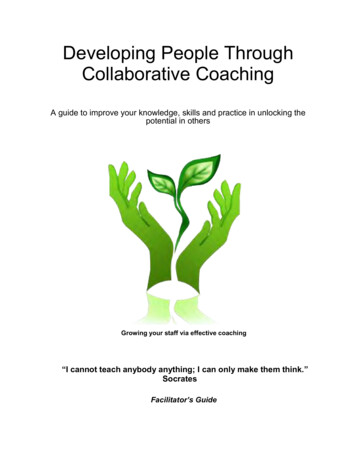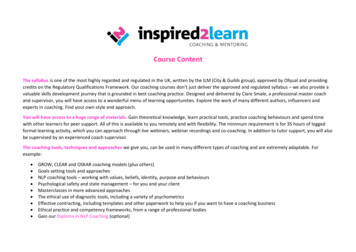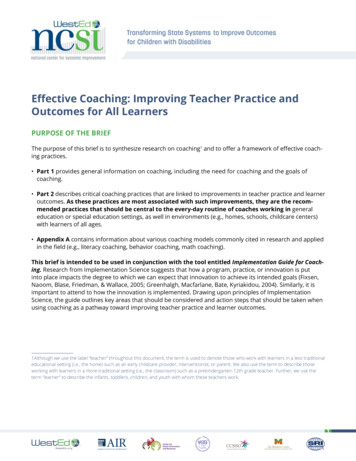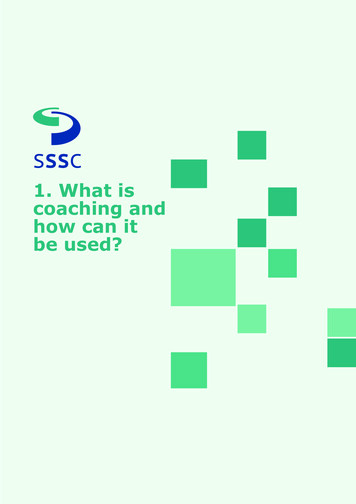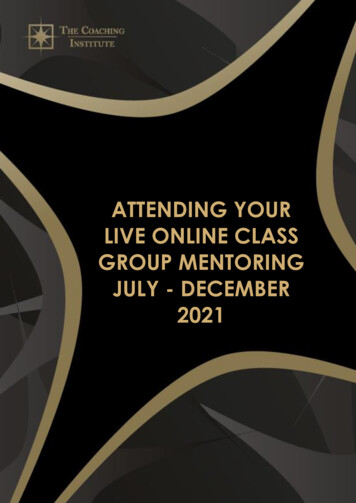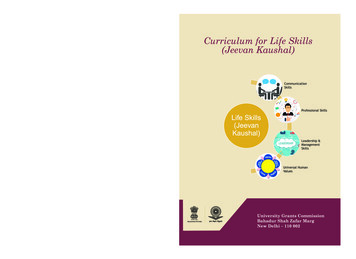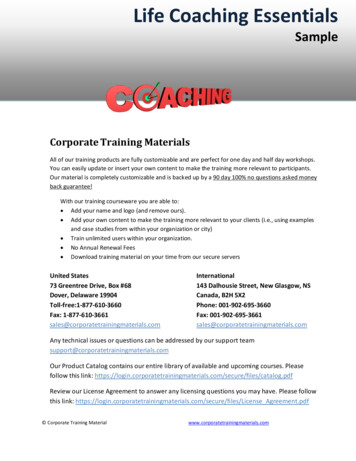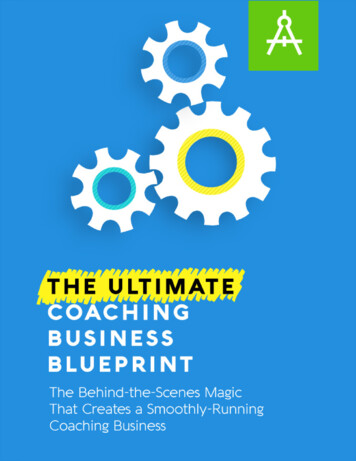
Transcription
Implementing Life Coaching Skills:Unlocking Your True PotentialBy Ignacio Gayo
Ignacio Gayo Associate Head Coach Florida International University (FIU) – Women's Swimming and Diving Very diverse team / 65% international / 30 athletes Division 1 / Conference USA / Won 6 C-USA Championships in a row! Identify areas for improvement Identify myself as a coach (strengths and weakness) Holistic approach (body, mind and emotional) The importance of connecting with the athlete / Communication
Emotional Intelligence What is Emotional Intelligence? Basic definition: “The capacity to connect, change, control and understand one’sown emotional states and others.” Evaluate and reflect on our value system and limiting beliefs Personal growth Hot topics in sports: Mental health (stress, anxiety, depression, eating disorders ) Facing your fears ( failure, rejection, disappointment )
Life Coaching What is Life Coaching? Life coach is not a therapist, not a psychologist, nor a consultant A life coach is a guide that helps a client to maximize their true potential by using some powerful toolsto achieve desired goals of personal growth Goals for a Life Coach Help the client (swimmer) to unlock mental struggles and move forward in life Move from a catabolic (destructive) energy to an anabolic (constructive) energy Help reflect and take responsibility “All the answers to our questions lie within” – life coaching principle
Life Coaching Skills Skill #1 –Acknowledge and validate Acknowledge: I am listening to what you say Validate: You have the right to feel that way. I see your perspective. No judgement Third person Example: Swimmer: I try to better my times everyday, but it seems like no matter what I do I cannotdrop times I am starting to feel a failure Coach: What I hear you say is that you are putting all your effort but you have not achieveyour goals yet (Acknowledge) It is very understandable that you feel that way (validate)
Skill #2 – Using Empowering QuestionsEmpowering questionsOpen-ended questions ( What, When, How, Where )Avoid close-ended questions (Are you trying your best?)Avoid “Why” questions (judgment)Other Examples:When you came up with a solution What positive changes would show up in your life?What holds you back from achieving your goal?What changes would need to happen?What is your intuition telling you?What is the worst that could happen?What are your limiting beliefs?Where did you get that information? Who told you this information? How true is it?
Skill #3 – Goal Setting“AIM SMART” GoalsA – Acceptable – What is the minimum that you can?I – Ideal – What is the maximum you that you can do?M – Medium – What is in the middle? What is realistic?S – Specific ( How specific is this goal? How many steps? What is thefirst step?)M – Measurable ( How are you going to measure the success of each ofyour steps?)A – Accountability ( Who is going to held you accountable for this step?)R – Reasonable (How reasonable is this step?T – Time-Oriented – (What is your timeline?)
How do I implement Life Coaching skills in myjob as a college swim coach? Beginnings 2 “hats” – Swim coach first, then Life Coach Balance The importance of listening without judgement Start with a few athletes (2-3 swimmers) Life coach sessions Main rule: My opinion doesn't matter, only their truths and where they are in their process Each person has their own time to process, you cannot treat everyone the same way
Continue “Empowering Women” What impact do I have in their college career and life? Clarity on their goals/ Making their own decisions / Self-confidence Self-independence – Get them ready for real life The most important thing start with yourself !
Questions? Debate?Thoughts?
Life Coaching What is Life Coaching? Life coach is not a therapist, not a psychologist, nor a consultant A life coach is a guide that helps a client to maximize their true potential by using some powerful tools to achieve desired goals of personal growth Goals for a Life Coach Help the client (swimmer) to unlock m
